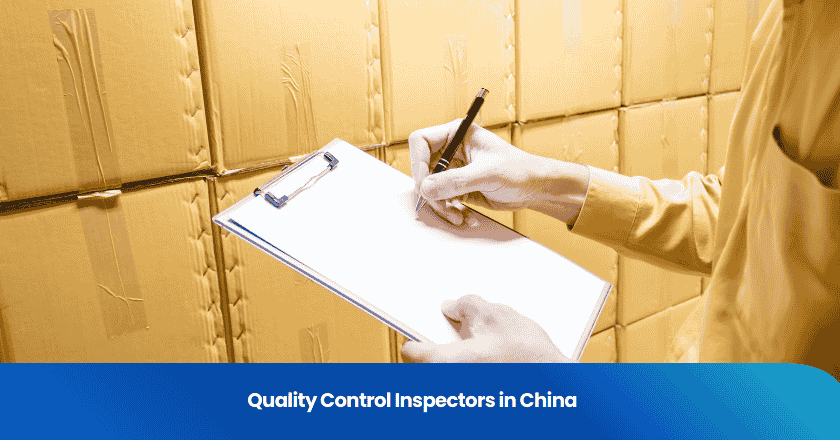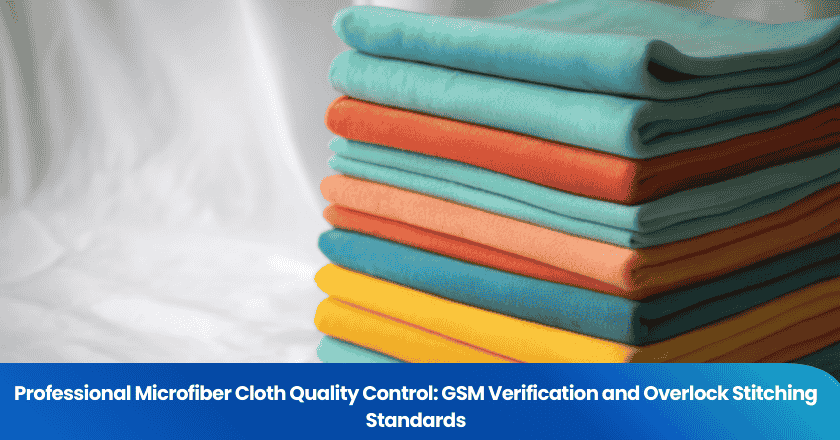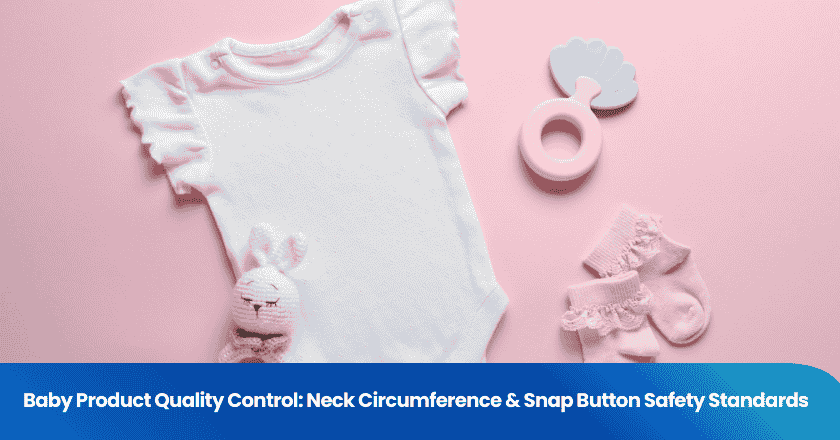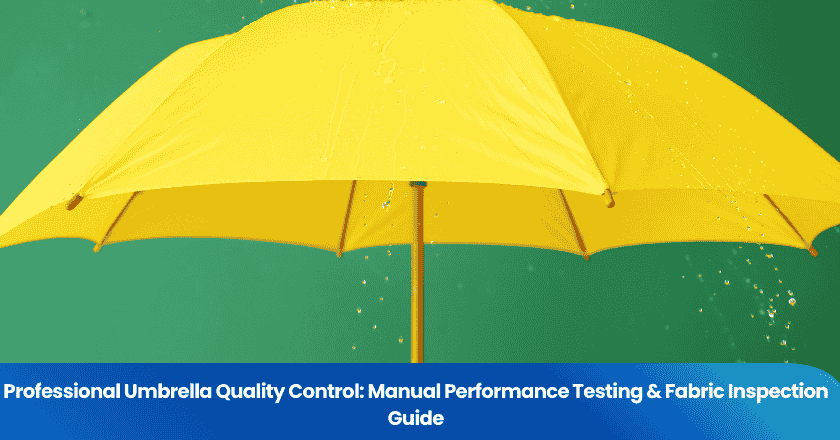
Quality control inspectors in China play a vital role in global trade. They examine goods, verify quality standards, and check products before shipment. Their work protects importers from receiving defective items. Many businesses rely on inspectors to maintain strict quality control. In China, quality standards often vary, so inspectors help companies avoid costly mistakes. Understanding the responsibilities of quality control inspectors in China supports successful business operations.
Key Takeaways
- Quality control inspectors in China check products at every stage to ensure they meet quality and safety standards, helping businesses avoid defects and costly mistakes.
- Inspectors serve many industries like electronics, textiles, toys, and food, using specialized tools and methods to meet each industry's unique quality needs.
- Regular inspections reduce risks by catching problems early, preventing returns, complaints, and legal issues while protecting brand reputation.
- The inspection process includes factory audits, production monitoring, product checks, and detailed reporting to keep clients informed and support decision-making.
- Choosing inspectors with strong expertise, clear communication, and problem-solving skills leads to better quality control and long-term business success.
Role of Quality Control Inspectors in China
Responsibilities
Quality control inspectors in China perform essential tasks to maintain product standards. They conduct thorough inspection of goods at different stages of production. Inspectors check raw materials, monitor assembly lines, and verify finished products before shipment. They use detailed checklists to assess product quality and ensure compliance with client specifications. Inspectors document findings and report any defects or inconsistencies. They also provide feedback to factories to improve manufacturing processes.
QC inspectors follow strict protocols during product inspection. They measure dimensions, test functionality, and evaluate packaging. Inspectors compare samples against approved standards. They identify issues such as incorrect labeling, poor workmanship, or safety hazards. Inspectors recommend corrective actions when they find problems. Their services help companies avoid costly returns and protect brand reputation.
Tip: Regular quality control inspections reduce the risk of receiving substandard goods and support long-term business success.
Industries Served
Quality control inspectors in China offer services across a wide range of industries. They support manufacturers in electronics, textiles, toys, and automotive sectors. Inspectors also work with furniture, home appliances, and food products. The demand for QC services remains high in industries where product safety and reliability are critical.
The following table highlights common industries and the types of inspection services provided:
| Industry | Typical QC Services | Common Inspection Focus |
|---|---|---|
| Electronics | Product inspection, testing | Functionality, safety |
| Textiles | Product inspection, sampling | Fabric quality, stitching |
| Toys | Product inspection, safety checks | Materials, small parts |
| Automotive | Product inspection, audits | Parts accuracy, durability |
| Furniture | Product inspection, assembly check | Finish, stability |
| Food Products | Product inspection, hygiene audit | Packaging, contamination |
Inspectors adapt their services to meet the unique requirements of each industry. They use specialized tools and methods for product quality inspection. Their expertise ensures that products meet international standards and customer expectations.
QC inspectors in China play a key role in supporting global supply chains. Their services help businesses maintain consistent quality and comply with regulations. Companies rely on quality control inspections to safeguard their investments and build trust with buyers.
Importance of Quality Control in China
Common Issues
Many importers face challenges when sourcing products from China. Factories sometimes produce goods that do not match the required specifications. Defects can include poor workmanship, incorrect labeling, or missing components. Inconsistent quality often results from a lack of proper monitoring during production. Without regular inspection, companies risk receiving products that fail to meet safety or performance standards. Quality control inspections help identify these problems early. Pre-shipment inspection and production monitoring allow businesses to catch issues before goods leave the factory.
Note: Early detection of defects through quality control saves time and reduces costs for importers.
Risk Mitigation
Quality control plays a critical role in risk mitigation. Inspection teams in China use detailed checklists and testing methods to verify product quality at every stage. They conduct pre-shipment inspection, production monitoring, and random sampling. These steps provide assurance that goods meet the buyer’s requirements. Quality assurance processes help prevent costly returns, customer complaints, and damage to reputation. Monitoring and inspection also reduce the risk of non-compliance with international regulations. Companies that invest in quality control gain greater confidence in their supply chain.
Standards Compliance
Meeting international standards is essential for global trade. Quality control inspectors in China ensure that products comply with safety, environmental, and performance requirements. Inspection teams check for proper labeling, correct materials, and adherence to industry standards. Pre-shipment inspection and quality assurance confirm that goods are ready for export. Production monitoring supports ongoing compliance throughout the manufacturing process. Consistent inspection and assurance help businesses avoid legal issues and maintain strong relationships with buyers.
Quality Control Inspections Process
Types of Inspections
Quality control inspectors in China deliver a range of inspection services to support global supply chains. They perform several types of inspections to verify product quality and compliance. The most common inspection services include:
- Pre-shipment inspection: Inspectors examine finished goods before shipment. They confirm that products meet specifications and quality standards.
- Product inspection: Teams assess goods at various production stages. They check for defects, accuracy, and consistency.
- Factory audit: Inspectors evaluate manufacturing facilities. They review production capabilities, working conditions, and quality management systems.
- Production monitoring: QC professionals observe manufacturing processes. They ensure that factories follow agreed procedures and maintain quality throughout production.
- Final inspection: Inspectors conduct a last review before goods leave the factory. They verify packaging, labeling, and product integrity.
These inspection services help importers reduce risks and maintain high standards. China QC inspections cover a wide range of industries, adapting to specific requirements for each product type.
Note: Selecting the right inspection type depends on the product, order size, and buyer requirements.
Step-by-Step Process
Quality control inspectors in China follow a structured process to deliver reliable inspection services. The step-by-step approach ensures thorough evaluation and consistent results.
1. Preparation
Inspectors review client requirements and product specifications. They prepare detailed checklists for the inspection.
2. Factory audit
Teams visit the manufacturing site. They assess the factory’s ability to produce goods that meet quality standards.
3. Production monitoring
Inspectors observe production lines. They check raw materials, assembly methods, and process controls.
4. Product inspection
QC teams select samples from the batch. They examine products for defects, accuracy, and compliance with standards.
5. Pre-shipment inspection
Inspectors evaluate finished goods before shipment. They confirm that products match order details and quality expectations.
6. Final inspection
Teams perform a last review. They check packaging, labeling, and product presentation.
7. Reporting
Inspectors document findings. They provide detailed reports to clients, highlighting any issues and recommending corrective actions.
This process supports effective risk management and ensures that products meet international standards. Inspection services in China rely on clear procedures to deliver consistent quality.
Tools and Methods
Quality control inspectors in China use specialized tools and methods to perform inspection services. These resources help them identify defects, verify compliance, and maintain high standards.
| Tool/Method | Purpose | Application |
|---|---|---|
| Measuring instruments | Check product dimensions | Electronics, automotive, textiles |
| Sampling techniques | Select representative product samples | Pre-shipment, production monitoring |
| Visual inspection | Detect surface defects and errors | Product inspection, final inspection |
| Functionality tests | Assess product performance | Electronics, toys, appliances |
| Factory audit checklists | Evaluate facility and processes | Factory audit |
| Packaging assessment | Verify packaging quality and labeling | Pre-shipment, final inspection |
Inspectors apply these tools during each stage of the inspection process. They use visual inspection to spot defects, measuring instruments to confirm dimensions, and sampling techniques to ensure accuracy. Factory audit checklists guide the evaluation of manufacturing sites. Functionality tests confirm that products operate as intended. Packaging assessment ensures that goods arrive safely and meet labeling requirements.
Tip: Effective use of inspection tools and methods improves product quality and reduces the risk of shipment delays.
QC inspectors in China rely on a combination of technical expertise and practical experience. Their services support importers by providing reliable quality control, thorough monitoring, and comprehensive factory audit solutions.
What to Expect from Quality Control Inspectors
Reporting
Quality control inspectors in China deliver detailed inspection reports after each inspection. These reports summarize findings, highlight defects, and recommend corrective actions. Clients receive clear documentation that outlines the scope of services performed. The inspection report includes photos, measurements, and test results. Importers rely on this information to make informed decisions about accepting or rejecting shipments. The reporting process ensures transparency and accountability throughout the supply chain.
Tip: Reviewing the inspection report helps businesses identify recurring issues and improve future orders.
Communication
Effective communication stands as a core element of qc services. Inspectors maintain regular contact with clients before, during, and after each inspection. They clarify requirements, confirm schedules, and address questions promptly. During the inspection, inspectors provide updates on progress and notify clients of any urgent concerns. Clear communication allows importers to respond quickly to problems and adjust production plans if needed. Inspectors use email, phone calls, and messaging platforms to keep clients informed.
- Inspectors answer technical questions about inspection procedures.
- Clients receive timely notifications about inspection results.
- Communication supports collaboration between factories and buyers.
Problem Solving
QC services extend beyond basic inspection tasks. Inspectors identify root causes of defects and suggest practical solutions. They work with factories to implement corrective actions and prevent future issues. Problem solving involves analyzing inspection data, reviewing production processes, and recommending changes. Inspectors help clients resolve disputes with suppliers by providing objective evidence from the inspection report. Their expertise in qc services supports continuous improvement and risk reduction.
| Problem Type | Inspector Action | Benefit to Client |
|---|---|---|
| Defective products | Investigate root cause | Fewer returns |
| Process deviations | Recommend adjustments | Improved consistency |
| Compliance failures | Advise corrective steps | Avoid regulatory penalties |
Note: QC services that include problem solving add value by supporting long-term business success.
Choosing Quality Control Inspectors in China
Qualities to Look For
Selecting reliable quality control inspectors in China requires careful evaluation. Inspectors must demonstrate technical expertise in factory audit and quality control services. They should possess strong attention to detail and a thorough understanding of quality assurance standards. Experience in multiple industries, such as electronics or textiles, increases their value. Inspectors who communicate clearly and provide comprehensive reports support effective decision-making. Companies often prefer inspectors with a proven track record in quality inspection companies and quality inspection services.
| Qualities | Description |
|---|---|
| Technical expertise | Knowledge of factory audit and quality control |
| Industry experience | Familiarity with various product categories |
| Communication skills | Ability to deliver clear, concise reports |
| Problem-solving ability | Skill in identifying and resolving issues |
| Integrity | Commitment to unbiased quality assurance |
Tip: Reliable inspectors consistently deliver accurate results and maintain transparency throughout the inspection process.
Questions to Ask
Importers should ask targeted questions when evaluating quality inspection companies in China. These questions help determine the inspector’s capabilities and the scope of quality control services offered.
- What experience do you have with factory audit and quality assurance?
- Which industries do your services cover?
- How do you conduct quality control inspections and reporting?
- What tools and methods do you use for quality inspection services?
- Can you provide references from previous clients?
- How do you handle disputes or non-compliance issues?
These questions reveal the inspector’s approach to quality control and their ability to deliver reliable services. Importers gain confidence by understanding the inspector’s process and commitment to quality.
Collaboration Tips
Effective collaboration with quality control inspectors in China enhances the value of quality inspection services. Companies should establish clear expectations and share detailed product specifications. Regular communication ensures inspectors understand the required standards for factory audit and quality assurance. Importers benefit from scheduling inspections at critical production stages and reviewing reports promptly. Building trust with quality inspection companies leads to better outcomes and long-term partnerships.
Note: Consistent collaboration supports continuous improvement and strengthens quality control services.
Quality control inspectors in China safeguard product quality and support global supply chains. Companies benefit by selecting inspectors with technical expertise and clear communication skills. Collaboration with inspection teams ensures consistent standards and reduces risk. Prioritizing quality control leads to successful sourcing and protects business interests.
Tip: Investing in reliable inspection services in China strengthens long-term partnerships and improves product outcomes.
FAQ
What qualifications do quality control inspectors in China usually have?
Most inspectors hold technical degrees or certifications in engineering, manufacturing, or quality management. They often gain experience through hands-on training in factories and ongoing professional development.
How often should companies schedule quality control inspections?
Companies typically schedule inspections at key production stages: before production, during manufacturing, and before shipment. The frequency depends on product complexity, order size, and risk level.
Can inspectors customize their inspection checklists?
Yes. Inspectors can tailor checklists to match client specifications and product requirements. Customization ensures that inspections address unique quality concerns for each order.
What happens if inspectors find defects during an inspection?
Inspectors document all defects in detailed reports. They recommend corrective actions and notify the client immediately. The client then decides whether to accept, reject, or request rework for the affected goods.
Do inspectors provide support for regulatory compliance?
Inspectors verify that products meet relevant international and local standards. They check labeling, safety, and documentation to help companies comply with regulations and avoid shipment delays.
Grow your business with TradeAider Service
Click the button below to directly enter the TradeAider Service System. The simple steps from booking and payment to receiving reports are easy to operate.





